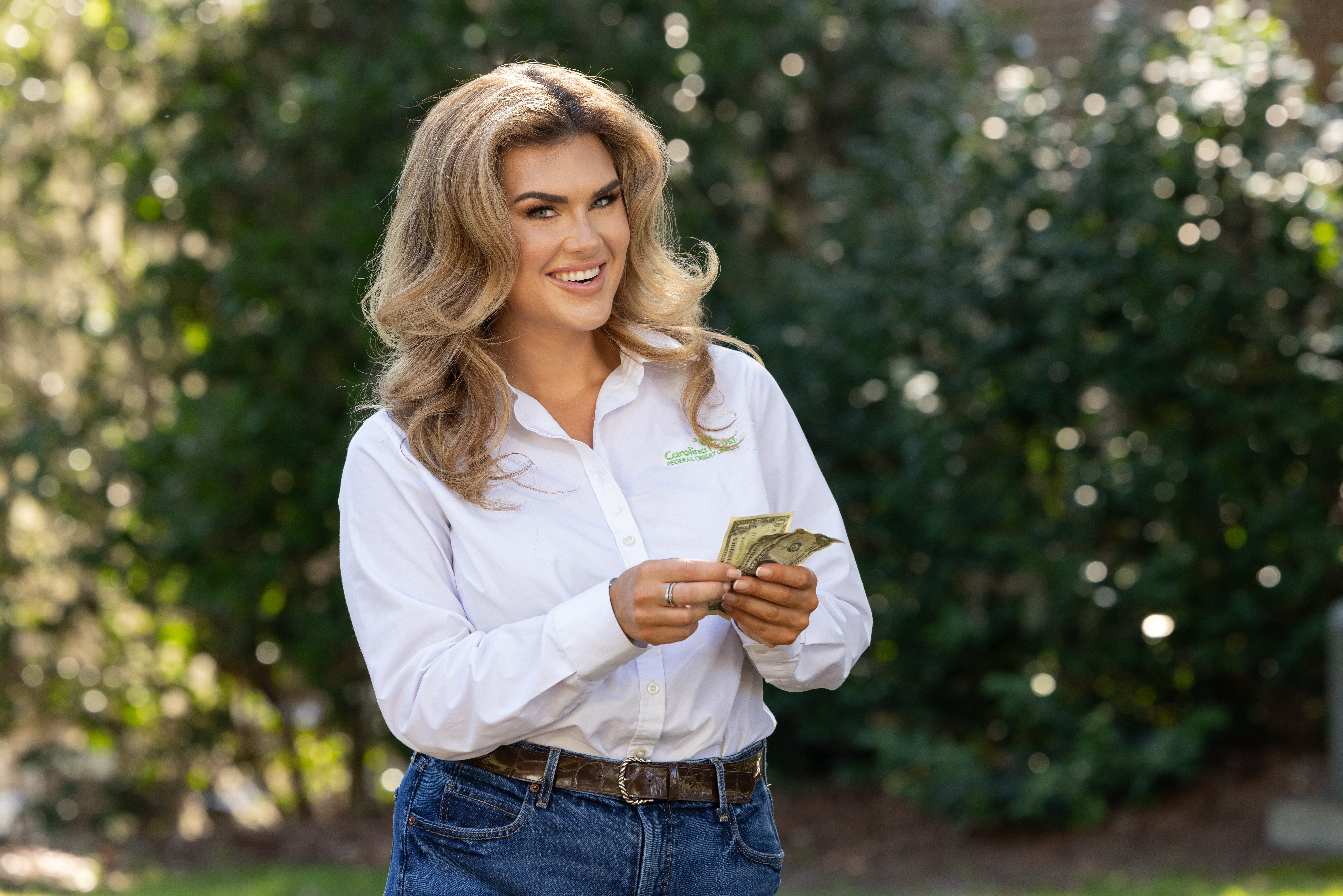Last November, I married my best friend. It was joyful and beautiful — but somewhere between planning the wedding and starting our life together, we had some of our most important conversations about money. Not because it’s romantic. But because it’s real.
Marriage & Money: Conversations to Have Before You Say “I Do”
Topics: Personal Finance
The grocery delivery. The $14 salad because you’re tired. The subscription you forgot about. The “buy now, pay later” because it’s only $40 today. Convenience isn’t bad. Sometimes it’s survival. It reduces friction in an already full life. But there’s a quiet cost we don’t always notice.
Topics: Personal Finance
February is all about love — flowers, candy hearts, date nights — but it’s also Heart Month, and February 6th is National Wear Red Day, which is basically your reminder to show your heart a little extra love (and maybe wear a cute red outfit while you’re at it).
Topics: Personal Finance, Seasonal
Snow Is Coming... So Let's Talk Cozy, Budget Friendly Meals
When snow is in the forecast, something strange happens. Grown adults suddenly feel compelled to rush the grocery store and buy every loaf of bread and gallon of milk within a 50-mile radius. Why? No one really knows. Will we be making French toast for a week straight? Possibly. Is it tradition at this point? Absolutely.
Topics: Personal Finance, Seasonal
Six Easy Ways to Save Money Without Sacrificing Your Lifestyle
In today’s economy, it is essential that you do what you can to save money. Many people are afraid of sacrificing the things they enjoy in order to keep more cash in their pockets. Fortunately, there are many ways that you can save money without having to give up the lifestyle you enjoy. Here is a look at some easy ways to save money without sacrifice.
Topics: Personal Finance
The start of a new year is sort of like a fresh slate, prompting lots of people to set New Year's resolutions. Some of the most common resolutions are eating healthier, becoming more physically active, saving money, improving personal relationships, learning a new hobby or skill, reading more, etc.
However, others avoid making resolutions altogether because they never stick to them or get the results they're looking for. You know, the folks who say things like "I always break my resolutions" and "I always give up by mid-January."
One reason New Year's resolutions are so difficult to keep is that they require you to change. Change is hard, and people tend to resist it because it involves a lot of work, willpower, and motivation to do things differently than you have in the past. It's a lot easier just to keep things as they are, especially if you don't have a plan of action with detailed steps on how you're going to make a change.
Whether you call your personal goals New Year's resolutions or not, there is a better way to achieve them: creating good habits. When your actions become a habit, you don't have to remember when, where, why, or how to do them. They just get done because they become part of your daily routine.
Remember, habits- good or bad- result from small decisions we make over time. Our lives today (e.g., finances, health, career achievements) reflect our past habits. To make personal changes, focus on creating habits and routines. Decide now who you want to be next year and prove it to yourself every day by creating lasting habits that make positive changes in your life.
Topics: Personal Finance, Seasonal
Monetary Resolutions for a Happier and Healthier New Year
Many people look for ways to slim down when the new year rolls around. They flood the gyms and fill up the parking lots, all in an effort to shed those holiday pounds.
Topics: Personal Finance
Hit the ground running for the New Year: Three Goals for Your Finances
If you've been looking to make positive changes in your life or just looking for a fresh start, there's no better time than the beginning of a new year. Starting now, you have 365 days to make changes in your life and work towards new goals. I encourage you to reflect this week about areas of your life that you want to improve and set attainable goals to make positive changes.
If you're looking to improve your financial health in 2026, check out the BALANCE blog below for a few tips. Also, be sure to subscribe to my weekly blog posts for encouragement and tips to keep you on track throughout the year.
Topics: Personal Finance
Can you believe it's almost Christmas? I feel like there are still so many things left to do. Luckily, I was able to cross baking cookies for Santa off of my to-do list. Growing up, we'd make a big batch of Christmas cookies a day or two before Christmas to take to different Christmas gatherings, and we would always save a few to set out for Santa. Santa wasn't the only one who got a treat; we always made sure to leave carrots for the reindeer too! We may have even left carrots for Santa instead of cookies a few years because my mom insisted that Santa was dieting.
This year, I requested cookie recipes from Carolina Trust employees at our annual cookie exchange so that Santa could have a new variety. I'm not going to lie this close to Christmas, I may have snuck a few cookies, but they were specifically for taste testing purposing. I wouldn't want to give Santa a nasty cookie. He would put me on the naughty list for sure!
Topics: Home, Life & School, Seasonal
All year long, we've been gearing up for the 6th Annual Myrtle Beach Bowl Game, which was held on Friday, December 19th. And now that Bowl Week is officially over, we can reflect on what a fantastic event it was!
Carolina Trust has been a proud sponsor of the Myrtle Beach Bowl since the inaugural game in 2020. This postseason competition features matchups from three conference partners – Conference USA, Mid-American Conference (MAC), and Sun Belt Conference. This year, Western Michigan University and Kennesaw State University were selected as the two teams facing off at Brooks Stadium, with Western Michigan pulling out the victory.
Hats off to the ESPN Events team that put together this fantastic event and the community partners that assisted them in such a major endeavor.
Click here for additional information about the Myrtle Beach Bowl and Carolina Trust's partnership.
Topics: Home, Life & School














